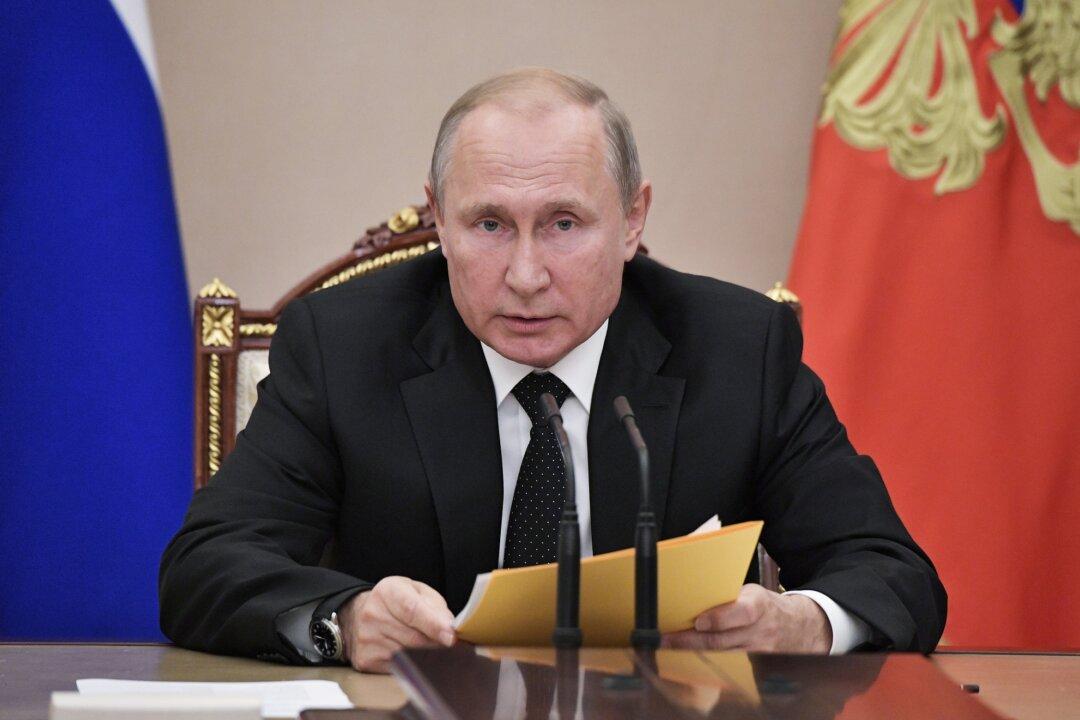Russian President Vladimir Putin on Aug. 23 ordered a reciprocal response to the recent United States missile test.
The U.S. military on Aug. 18 tested a cruise missile that would have been banned under the Intermediate-Range Nuclear Forces, which the country withdrew from earlier this month over what it described as repeated violations of the treaty by Russia.





